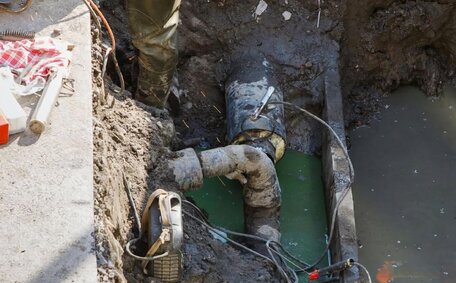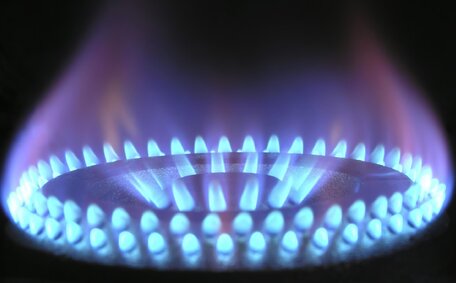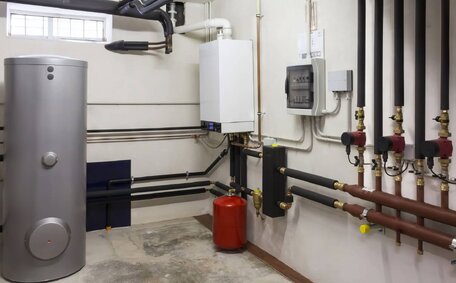
Sump Pump Failure Solutions
Sump pumps fail due to power outages, clogs, frozen pipes, and more. Prevent water damage by understanding causes and contacting plumbers for solutions to extend pump life.
Read MoreEnsuring your home’s hot water quality, essential for daily use, is critical. Brown water, odourous or bad-tasting can indicate problems with corrosion, pollution or bacteria buildup in pipes. Unchecked plumbing issues can jeopardize your family’s well-being.
Homeowners commonly encounter the following hot water quality issues:
Cronulla Plumbing recognises that issues such as brown tap water can concern homeowners. As licenced Sydney plumbers, we have seen water issues stem from various factors like outdated pipes or pollution entering the supply.
This guide outlines actions to take when facing water quality issues, the signs to be aware of and practical solutions ranging from using filters to performing drain flushes. With health safety in mind, we ensure readers are informed on keeping your water tap flowing cleanly or recognising when it’s time to call professionals like Cronulla Plumbing.
There are several potential causes of poor water quality in homes, stemming from the water supply infrastructure as well as internal plumbing issues:
Your water system may also be affected by contaminants naturally present in water sources and your water usage patterns. Regular maintenance, such as drain flushing, prevents buildup and keeps your tap water safe for everyone. Professional installation of whole-house filters provides optimal protection, ensuring water safety and significantly enhancing water quality.
Degradation of water quality can be significantly attributed to old iron pipes and various issues in private plumbing. As your household plumbing corrodes, rust or accumulate mineral deposits over time, the water supply becomes compromised.
Signs of quality issues in your hot water system may include:
To To address rusted plumbing concerns and ensure clean water, you can take certain steps, homeowners can replace problematic sections, particularly when dealing with corroding iron pipes, flush systems, or install filters. However, extensive damage to the main water supply may require professional help.
As licenced Sydney plumbers, Cronulla Plumbing is ready to inspect your pipes; please reach out to us to identify and rectify any concerns, and restore safe, quality water supplies for homeowners.
Pollutants, often beyond your control, may compromise water quality from the entry point to your property boundary. Contaminants like chemicals, organic matter and bacteria pose health issues if consumed, a concern for every property owner.
Signs of brown water taps that may contain pollutants include:
Upon suspecting dirty tap water pollution, promptly ensure the safety of your drinking water:
For more information on persistent water quality problems from contamination, Cronulla Plumbing can conduct thorough testing and identify solutions to restore safe water.
There are several clear signs indicating your water quality may be compromised:
Perform simple tasks like running taps to check for discolouration or inspecting filters for abnormal sediment. Keeping records helps identify changes over time.
If signs persist, get the water professionally tested or install filters to resolve any contamination. Ultimately, unresolved issues may require pipe repairs, drain flushes or supply infrastructure checks with local water authorities.
Drinking poor quality water can lead to significant health risks. Contaminants like heavy metals, pesticides, and bacteria can cause conditions including:
Adhering to Australian water guidelines is crucial in protecting vulnerable individuals, such as children, pregnant women, and the elderly, from severe reactions, emphasising the need for water to be safe to drink. Extended exposure also heightens long-term health consequences.
Restoring water quality systematically, particularly if you observe brown hot water, is essential to ensure drinking safety and protect against acute and chronic illnesses. If tap water issues continue despite flushing or filtration, a detailed inspection by Cronulla Plumbing can pinpoint solutions to enhance water safety.
Contacting a professional plumber is crucial if water quality issues remain after troubleshooting. Signs your brown tap water might require an expert’s intervention include:
As licenced Sydney plumbers, Cronulla Plumbing’s emergencies team can conduct thorough assessments within a few hours to diagnose the underlying causes of water quality problems. We determine whether issues stem from external contamination requiring council intervention, internal plumbing faults needing repair or replacement, or insufficient filtration.
Our emergency team performs thorough inspections to find suitable solutions for problematic areas, reinstating water safety and quality. We are equipped to handle necessary installation and maintenance work promptly and affordably.
For assistance regarding persistent water quality issues in Cronulla homes, please call Cronulla Plumbing on 1300 349 338 or email jobs@cronullaplumbingservice.com.au.
Regular water testing can ensure that your family’s reliance on water quality is upheld. Cronulla Plumbing can conduct thorough water analysis to detect issues early before problems arise. We assess key elements including how your water does in quality tests:
Once issues are identified, we customise treatments similar to those used in facilities to address the specific problems.
Treatment options Cronulla Plumbing can install include:
Regular testing informs treatment choices, allowing Cronulla Plumbing to maintain high water quality for your family’s health.
Homeowners can take several preventative steps to maintain clean water quality:
We also advise homeowners to use your periodic professional water quality inspections. As licenced Sydney plumbers, Cronulla Plumbing provides comprehensive testing and can prescribe solutions to safeguard clean water.
Safe to drink water is vital for family health. Issues like contamination, corrosion and pollution can threaten wellbeing if consumed regularly.
This guide set out common causes from outdated pipes to agricultural runoff. We explored visible signs like odours and sickness that may indicate problems. While initial steps like flushing systems or learning how to fix minor issues can help, to explore the root cause in pipes your house depends on, persistent issues require professional attention.
As a licensed plumber in Sydney, Cronulla Plumbing is equipped to tackle all water quality issues. We conduct tailored testing to identify problems then engineer appropriate solutions whether filtration, remediation or maintenance.
Don’t hesitate to call 1300 349 338 or email jobs@cronullaplumbingservice.com.au to book a comprehensive inspection. Safeguard your family by restoring water quality today.
Sump pumps fail due to power outages, clogs, frozen pipes, and more. Prevent water damage by understanding causes and contacting plumbers for solutions to extend pump life.
Read MoreIf your monthly gas bill rises suddenly for no clear reason, the cause could be a gas leak from old pipes or appliances. Contact your provider to investigate.
Read MoreScale buildup reduces the efficiency of hot water systems over time. Regular descaling helps remove this. Flush your system with vinegar or a descaling solution.
Read MoreCronulla, 2230 NSW
We will call back as soon as possible.




